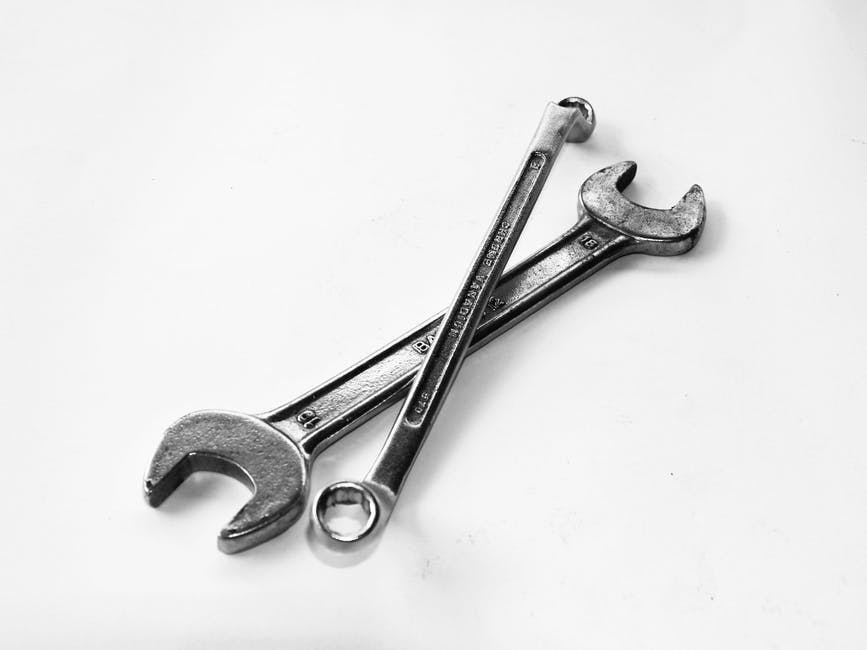Did you know that America produces 254 million tons of trash a year? And that only 34.4% of the trash produced is recycled?
Unfortunately, these figures are similar worldwide. But there’s a way we could throw away fewer things if we just learned how to fix our possessions.
Keep reading to discover how fixing things can help save the earth and also can make you smarter.
Table of Contents
How to Fix Things
Often when we have an item of clothing that has holes in it, or when our phone screen breaks, we are tempted to throw it away and get a replacement. However, our throw-away society is putting a big strain on the environment and also ourselves.
Fixing things isn’t that hard. Especially with the invention of the internet. Nowadays you are able to do a quick search for how to fix something and the chances are there will be several blogs filled with information. You might even be able to find some YouTube videos or infographics that can help you fix your possessions. Have a look on IFixIt for repair guides.
You could also find books on how to fix your items or ask your family and friends if they know how to fix it. For example, if you have mechanical items, such as exercise equipment or gardening tools that need repairing, then you could ask your brother who works at a gym to help you fix them or your uncle who is a gardener to help you repair them.
While the above items are technically mechanical things in that they convert one form of energy into another, you might encounter more difficult mechanical fixes. For example, you might need to take apart items to work out how to fix them. If you have a broken alarm clock then you might need to take it apart to see what the issue is.
To do this you’ll need a screwdriver and to be careful (ensure you don’t lose the screws). Then have a look inside the alarm clock and see why it isn’t working. There might be a screw loose on the inside, or a part might need replacing. Alternatively, the clock might need some lubricant to help reduce any resistance between the moving parts.
You should only throw an item away if you’re completely sure that you or anyone else can’t fix it. You should also check whether all of it or parts of it can be recycled, as this can help save the environment and reduce waste.
What Types of Things Can be Fixed?
You’ll be surprised about what you can fix with a little care and attention. Most items you have in your household can probably be fixed.
For example, a sofa that has its fabric all ripped can be re-upholstered, a broken photo frame can be glued back together or you can get new replacement glass. Another example of things that can be fixed is squeaky doors. Sometimes door hinges need to be lubricated, this fix can take 2 minutes and saves you a lot of hassle from getting a new door or having to listen to the squeaking.
If you have an item that is broken then chances are it can be fixed. Sometimes your possessions just need a good clean or a bit of TLC. Check out this step by step guide on how to clean your ice machine to make it look brand new again.
What Are the Benefits of Fixing Stuff?
There are many benefits to fixing your possessions. A lot of people think that fixing things can be time-consuming and a waste of time, but this isn’t the case. A lot of fixes can take a matter of minutes and can save you money too.
1. Saves the Planet
An obvious benefit of fixing your items instead of throwing them away is that it saves the planet. If every person in the world produced less waste then the environment would be in a better place.
The more you recycle, reuse, and repair your items, the better it is for the environment. If you have some broken items that you no longer want, such as a broken chest of drawers, why not try fixing it and then selling it online? You give your chest of drawers a new lease of life, do your bit for the planet, and also make some money in the process.
2. Brings People Together
Fixing things can help to bring people together. If you have a big project to work on and try to fix then you might ask your friends or family to help you. This quality time spent together can really strengthen your bond.
3. Feel Good
Fixing things can make you feel good. Our brains are conditioned to experiencing good feelings when we achieve certain tasks, such as fixing things. A lot of people who struggle with mental health issues often find that fixing things can help to boost their moods and makes them feel accomplished.
4. Saves Your Brain
Another benefit is that it can help to keep your brain active. Learning new skills, such as fixing broken items, can help to activate processes that maintain brain cells and stimulate communication within your brain cells. Fixing your broken possessions can also help to keep you busy, which is much healthier for your brain than aimlessly watching TV for hours.
5. Saves You Money
Fixing things can also help to save you money. Often repairs or parts cost a lot less than buying something new does. For example, getting a new car costs a lot more than getting the wheels replaced on your current car. You can then put this money towards something you really want, like a holiday or buying a new house.
Start Fixing Things Now
If you have some broken items lying around that were waiting to be thrown away, try fixing them instead. Fixing things benefits everyone involved and can help you do your part to look after the planet.
Don’t forget to check out more of our articles, such as our how-to guides that can provide you with insightful tips for fixing more of your possessions.





